Cannabinoids have taken the spotlight in wellness and recreational spaces, thanks to their variety and versatility. Among the newer compounds gaining traction is Hexahydrocannabinol (HHC).
As with most other cannabis products and derivatives, HHC’s legal status is murky and constantly evolving. This blog dives into the complex legality of HHC, from federal laws to state-by-state variations and international perspectives.
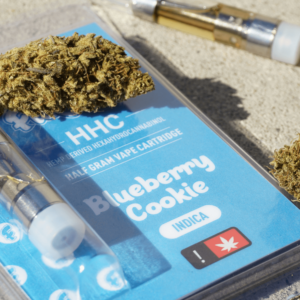
What is HHC? Understanding the Compound
Before unraveling HHC’s legality, let’s break down what it is. Hexahydrocannabinol (HHC) is a hydrogenated derivative of tetrahydrocannabinol (THC).
While Delta 9 THC is the most well-known psychoactive compound in cannabis, HHC is its lesser-known sibling, offering similar effects but with some chemical differences.
Chemical Composition and Origin
HHC is a semi-synthetic cannabinoid derived by hydrogenating THC molecules. This process adds hydrogen atoms to the compound, making it more stable and resistant to oxidation.
Although it occurs naturally in trace amounts in cannabis plants, most HHC products are produced synthetically.
Effects and Uses
HHC is known for its mild psychoactive effects, often described as being between Delta-8 THC and Delta-9 THC. Users report feelings of relaxation, euphoria, and slight sedation. Its potential medicinal benefits include:
- Pain relief
- Appetite stimulation
- Anti-anxiety effects
However, research on HHC is limited, leaving many questions about its safety and efficacy unanswered.
The Chemistry Behind HHC: What Makes It Unique?
HHC is chemically distinct due to its hydrogenated structure. The process of hydrogenation involves adding hydrogen molecules to THC, creating a more stable compound. This stability means HHC has a longer shelf life compared to THC, as it is less prone to degradation from heat, light, or air exposure. This chemical advantage has made HHC a popular option for consumers and manufacturers seeking longevity in cannabinoid products.
The unique chemical structure of HHC also influences how it interacts with the body’s endocannabinoid system (ECS). HHC binds to CB1 receptors in the brain and central nervous system, which contributes to its psychoactive effects. Its slightly altered binding affinity compared to THC explains its milder high, which many users find desirable.
Why the Buzz Around HHC?
The growing popularity of HHC stems from its legal gray area. It’s often marketed as a legal alternative to THC, making it attractive in states where marijuana remains restricted. But does its legal status hold up to scrutiny? Let’s find out.
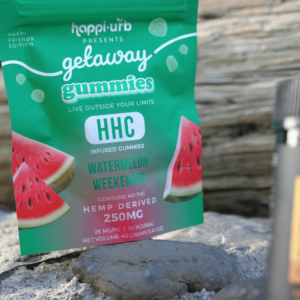
Federal Legality of HHC in the United States
The federal government’s stance on cannabinoids is a tangled web of regulations. HHC occupies a peculiar space, balancing between legal and illegal depending on its source and interpretation under federal law.
The Controlled Substances Act
Under the Controlled Substances Act (CSA), all THC derivatives derived from marijuana are considered illegal. However, HHC’s synthetic production complicates this classification.
Unlike naturally occurring THC, synthetic cannabinoids are often treated as Schedule I substances, which are strictly prohibited.
The 2018 Farm Bill
The 2018 Farm Bill legalized hemp and its derivatives, provided they contain less than 0.3% Delta-9 THC. Legal HHC regulation falls under this umbrella. But the bill’s language doesn’t explicitly address HHC, leaving room for interpretation.
DEA’s Position on HHC
The Drug Enforcement Administration (DEA) hasn’t officially classified HHC. However, it has clarified that synthetic cannabinoids are controlled substances.
This creates a gray area: Is HHC considered synthetic if derived from industrial hemp products or legal hemp-derived cannabinoids? Until the DEA provides explicit guidance, the question remains unresolved.
The Federal Analogue Act
This act criminalizes substances structurally or pharmacologically similar to Schedule I drugs. Since HHC mimics THC’s effects, it could theoretically fall under this act. Legal experts debate whether this applies to HHC, as it depends on specific formulations and intent.
Additional Federal Considerations
Federal authorities often evaluate cannabinoids in the broader context of public health. For HHC, this means balancing potential benefits against risks like misuse drug addiction, or contamination. The legal framework could tighten if HHC gains significant traction in recreational markets.
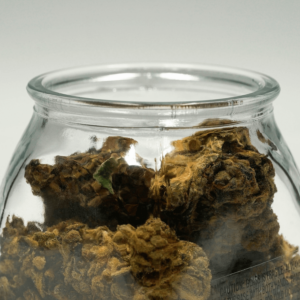
State-by-State Breakdown: Where is HHC Legal?
When it comes to HHC’s legality, state laws add another layer of complexity. Cannabis laws in the U.S. vary widely, with states adopting different approaches to hemp-derived THC isomers and hemp-derived cannabinoids like HHC.
States with Clear Legalization
Some states explicitly allow hemp-derived cannabinoids, including HHC, as long as they comply with the 2018 Farm Bill. These states often have more progressive cannabis policies, such as:
- Oregon: Known for its comprehensive cannabis regulations, Oregon permits the sale of hemp-derived products like HHC.
- Colorado: A pioneer in cannabis legalization, Colorado includes hemp-derived cannabinoids in its legal framework.
- California: Home to a robust cannabis industry, California permits HHC under specific conditions.
- Illinois: Focused on cannabis reform, Illinois allows the sale and use of HHC.
In these states, you can buy and use HHC products without much concern, provided they meet quality standards.
States with Cannabis Plant Restrictions
Other states have banned or heavily restricted hemp-derived cannabinoids, including HHC. For example:
- Idaho: Maintains strict anti-cannabis laws, making HHC illegal.
- Iowa: Prohibits the sale and use of psychoactive cannabinoids, including HHC.
- Utah: Requires stringent testing and labeling for hemp-derived products, limiting HHC availability.
Ambiguous or Evolving Legislation of Hemp-Derived Products
Some states have yet to address HHC explicitly, creating ambiguity. For instance:
- New York: Recently updated its cannabinoid regulations but hasn’t clarified HHC’s status.
- Texas: Frequently updates its hemp laws, leaving HHC’s legality in flux.
- Florida: Allows hemp-derived products but lacks specific guidance on HHC.
Regional Trends
A notable trend is stricter regulations in Southern states, while the West Coast and Northeast are generally more lenient. This patchwork legislation makes it crucial for consumers to check their state’s laws before purchasing HHC products.
Consumer Tips
For those navigating state regulations:
- Research state-specific cannabis laws.
- Purchase from licensed retailers.
- Look for lab-tested products to ensure compliance and safety.
Risks and Challenges of Using HHC
While HHC may seem like a promising alternative to THC, it comes with legal and practical risks.
Hemp-Derived Cannabinoids: Legal Risks
- Possession Penalties: If HHC is banned in your state, possessing it could result in fines or legal action.
- Law Enforcement Confusion: Many police officers may not differentiate between HHC and illegal THC, leading to potential misunderstandings.
Employment and Drug Testing
Most drug tests screen for THC metabolites. Since HHC produces similar metabolites, using it could trigger a positive result, jeopardizing your employment.
- Proactive Measures: Check your employer’s drug policy before using HHC.
- Alternatives: Opt for non-psychoactive cannabinoids like CBD if drug testing is a concern.
Health Concerns
- Limited Research: The lack of comprehensive studies on HHC raises questions about its long-term safety.
- Unregulated Products: Without strict regulations, HHC products may vary in potency and purity, posing potential health risks.
- Additive Concerns: Some manufacturers use additives that may affect product safety.
Business Challenges
For businesses, navigating the HHC market is fraught with challenges:
- Ensuring compliance with local and federal laws
- Properly labeling and testing products to meet regulatory standards
- Educating consumers about the nuances of HHC
Consumer Awareness
As a consumer, it’s essential to:
- Verify product authenticity.
- Check for third-party lab results.
- Avoid unverified sellers.
Consumer Safety: What to Look for in HHC Products
The unregulated nature of the HHC market means consumers must be vigilant when purchasing products. Here are some tips for ensuring safety and quality:
- Third-Party Lab Testing: Always choose products that have been independently tested for potency and contaminants such as heavy metals, pesticides, and solvents.
- Clear Labeling: Reputable brands will provide detailed information about the product’s ingredients, source, and cannabinoid content. Ensure HHC concentrations remain within the legal limit.
- Source of HHC: Verify whether the HHC is hemp-derived or synthetically produced, as this can influence its federally legal status and potential risks.
By prioritizing transparency and quality, consumers can reduce the risks associated with unregulated cannabinoid products.
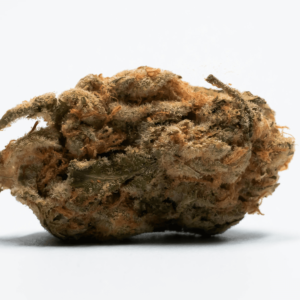
The Global Perspective: HHC Legality Beyond the U.S.
Cannabinoid regulations vary significantly worldwide. Here’s a look at how HHC fits into the global legal landscape.
Countries with Progressive Cannabis Policies
- Canada: Fully legalized cannabis but has no specific regulations for HHC yet.
- Netherlands: Known for its cannabis-friendly policies, though synthetic cannabinoids are more tightly controlled.
- Uruguay: A leader in cannabis legalization, potentially opening doors for cannabinoids like HHC.
Regions with Strict Prohibitions
- Asia: Many Asian countries, such as Japan and Singapore, have zero-tolerance policies for cannabinoids, including HHC.
- Middle East: Most nations in this region strictly prohibit cannabis derivatives.
Emerging Markets
- Europe: While the European Union (EU) allows some hemp-derived products, individual countries have varying stances on cannabinoids like HHC.
- South America: Countries like Uruguay and Colombia are exploring broader cannabis legalization, potentially paving the way for HHC regulation.
Challenges in Global Regulation
- Lack of Standardization: Different countries have unique regulatory frameworks, making compliance challenging.
- Cultural Stigma: Negative perceptions of cannabinoids can hinder market growth.
The Future of HHC: Legal Trends and Industry Impact
What lies ahead for HHC? Although the future of HHC remains uncertain, several trends suggest how its legal and commercial landscape may evolve.
Legislative Trends
- Broader Legalization: As public opinion shifts, more states and countries may move to legalize hemp-derived cannabinoids and hemp-derived product consumption, including HHC.
- Clearer Regulations: Advocacy groups and industry players are pushing for explicit laws to eliminate the gray areas surrounding HHC.
Industry Impact
- Market Growth: The HHC market could expand significantly if legality becomes more defined.
- Competition: HHC faces competition from other cannabinoids like Delta-8 and Delta-10 THC, driving innovation.
- Consumer Education: Companies will need to invest in educating consumers about HHC’s effects, legality, and safe usage.
Potential Regulatory Frameworks
Future regulations might include:
- Standardized testing for potency and contaminants
- Clear labeling requirements
- Age restrictions for purchasing HHC products
- Inclusion in existing cannabis policy frameworks
Industry Adaptations
Businesses must:
- Monitor legislative updates.
- Invest in research and development.
- Build transparent supply chains to foster consumer trust.
The Role of Advocacy in Shaping HHC Laws
Advocacy groups and industry leaders play a crucial role in defining the legal landscape for HHC and championing hemp industry growth. Organizations advocating for cannabis reform often push for:
- Clearer Federal Guidelines: Proposals for comprehensive legislation that explicitly addresses emerging cannabinoids like HHC.
- Consumer Protections: Advocacy for stricter labeling, testing, and manufacturing standards to ensure product safety.
- Public Education: Efforts to inform the public about the benefits, risks, and legality of HHC to foster informed decision-making.
These efforts are crucial as the industry matures and governments attempt to keep pace with new cannabinoid innovations.
Final Thoughts: Navigating the World of HHC
HHC represents an exciting frontier in the world of cannabinoids, offering unique effects and potential therapeutic benefits. However, its murky legal status and lack of regulation present challenges for both consumers and businesses. By staying informed, advocating for clearer laws, and prioritizing safety, individuals can responsibly explore what HHC has to offer.
Conclusion: Is HHC Legal? A Nuanced Answer
The question “Is HHC legal?” doesn’t have a straightforward answer. Its legality hinges on:
- The source of HHC (hemp-derived vs. synthetic)
- Federal interpretations of existing laws
- State-specific regulations
For consumers, the best advice is to stay informed. Research your local laws, purchase from reputable sources, and approach HHC with caution. As the cannabis industry evolves, so too will the legal landscape for compounds like HHC. Only time will tell whether it becomes a mainstream cannabinoid or remains in the legal shadows.
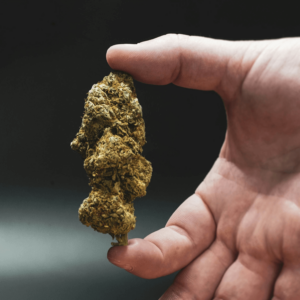
Frequently Asked Questions
1. Can HHC get you really high?
Yes, HHC (Hexahydrocannabinol) can get you high, though its effects may vary depending on the individual, dosage, and product quality. Like all legal hemp-derived products, hemp-derived HHC is a psychoactive compound, and its effects are often compared to those of Delta-8 THC and Delta-9 THC, though it is generally considered milder than Delta-9 THC.
Users commonly report experiencing:
- Euphoria and uplifted mood
- Relaxation and reduced stress
- Enhanced sensory perception
- Mild sedation at higher doses
The “high” from HHC is often described as clear-headed and smooth, making it appealing to those who want psychoactive effects without overwhelming intensity. However, factors like tolerance, metabolism, and product formulation can influence its potency and duration.
2. In what states is HHC illegal?
HHC’s legal status varies by state, with some banning it outright while others allow its sale and use under specific conditions. States that have explicitly restricted or banned HHC include:
- Idaho: Maintains a strict anti-cannabis stance, banning all THC derivatives, including HHC.
- Iowa: Prohibits psychoactive cannabinoids like Delta-8 THC and HHC.
- New York: While cannabis is legal for recreational use, certain hemp-derived cannabinoids, including HHC, are restricted.
- Nevada: State laws prohibit the sale of synthetic or semi-synthetic cannabinoids, which may include HHC.
- Utah: Bans psychoactive hemp derivatives, including Delta-8 THC and potentially HHC.
The legality of HHC often hinges on whether it is derived from hemp or marijuana. States like Colorado, California, and Oregon generally allow hemp-derived cannabinoids like HHC, provided they meet federal requirements under the 2018 Farm Bill.
Due to frequent updates in cannabis laws, always check your state’s regulations before purchasing or using HHC products.
3. Does HHC fail a drug test?
Yes, using HHC can cause you to fail a drug test. Most standard drug tests are designed to detect THC metabolites, and since HHC is structurally similar to THC, your body metabolizes it into compounds that are indistinguishable from those produced by Delta-9 THC.
Here’s what you should know:
- Detection in Urine Tests: HHC produces THC-COOH metabolites, which are commonly screened for in urine drug tests.
- Detection Window: The detection period for HHC is similar to that of THC and depends on usage frequency and individual metabolism. It could range from a few days for occasional users to weeks for regular users.
- Employment Risks: If your workplace enforces zero-tolerance drug policies, using HHC can lead to disciplinary actions or termination.
Until more targeted testing for HHC becomes available, it’s safest to assume it will trigger a positive result on a standard drug test.
4. Is HHC a controlled substance?
HHC occupies a legal gray area, making its classification as
a controlled substance ambiguous. Here’s a breakdown:
- Under Federal Law:
- The 2018 Farm Bill legalized hemp and its derivatives containing less than 0.3% Delta-9 THC. HHC derived from hemp may technically fall within this legal scope.
- However, the Controlled Substances Act (CSA) prohibits synthetic cannabinoids. If HHC is synthesized rather than extracted naturally from hemp, it could be classified as a Schedule I controlled substance.
- DEA’s Interpretation:
- The DEA has clarified that synthetic cannabinoids are federally illegal. Depending on how HHC is produced, it may be considered synthetic and therefore subject to the same restrictions.
- State Laws:
- Some states treat HHC as a controlled substance regardless of its source, aligning it with other THC derivatives.
Until further clarification is provided by the DEA or Congress, HHC’s classification as a controlled substance largely depends on the source (hemp-derived vs. synthetic) and interpretation by law enforcement agencies. Always consult legal resources to ensure compliance in your area.





